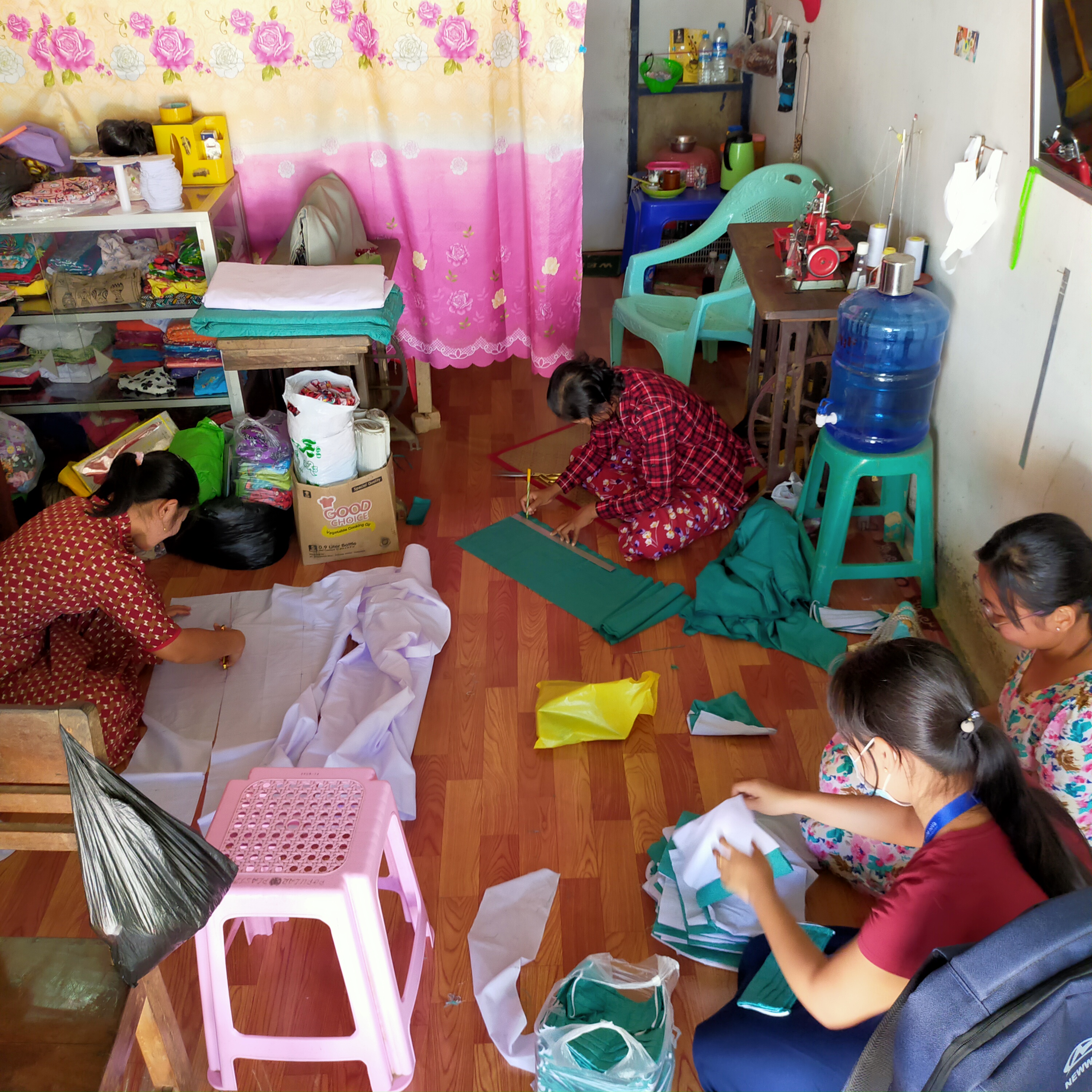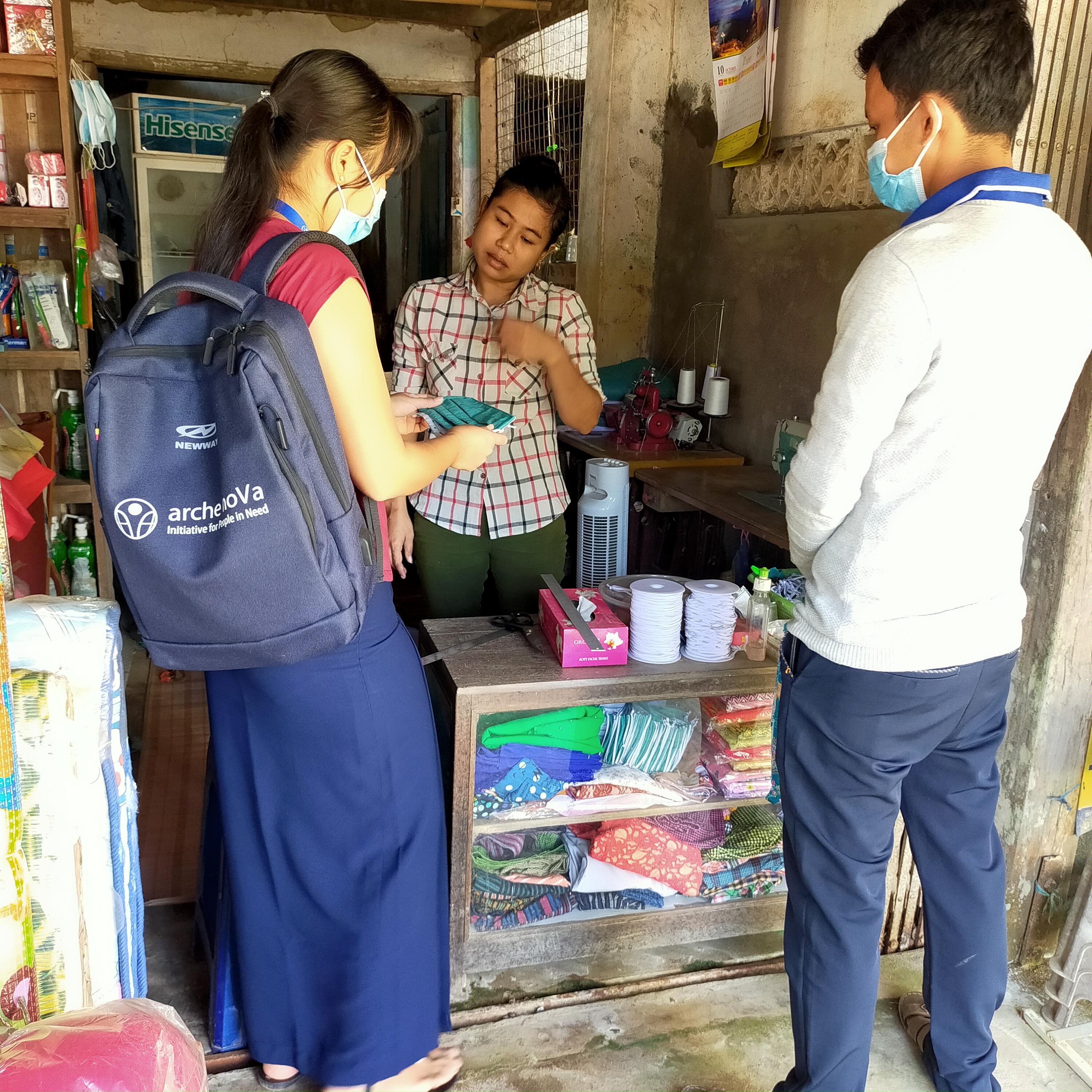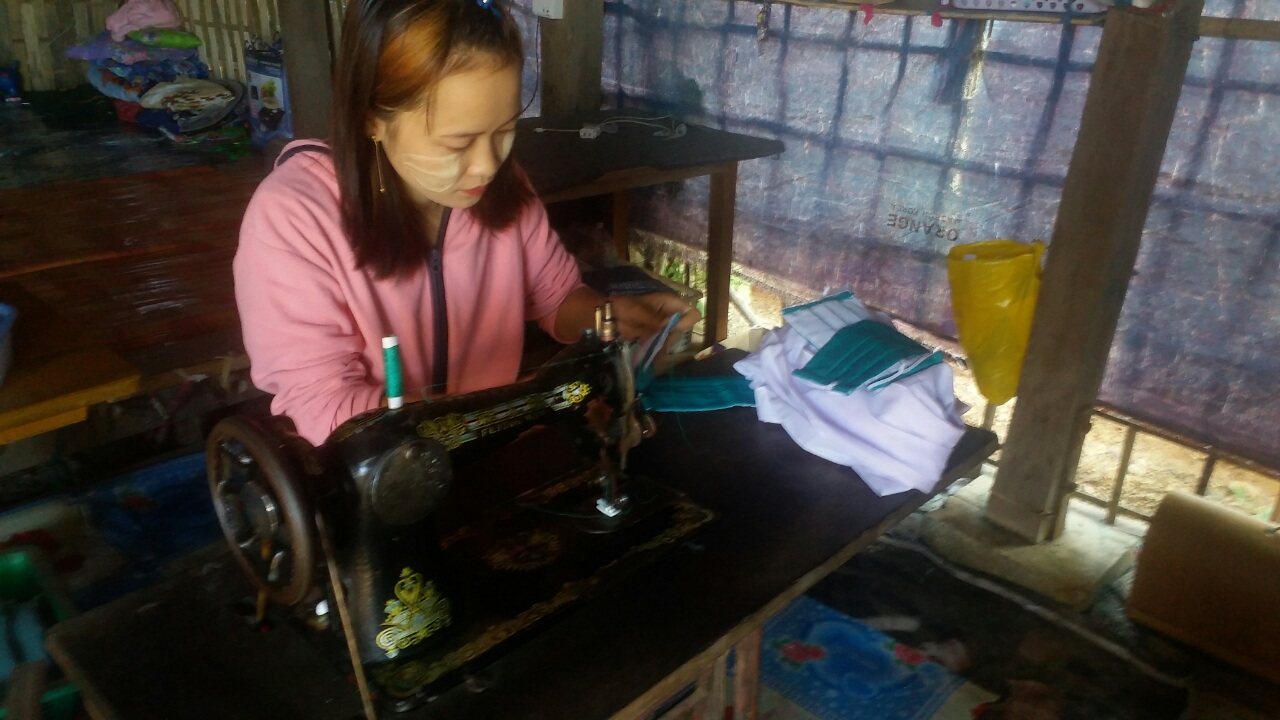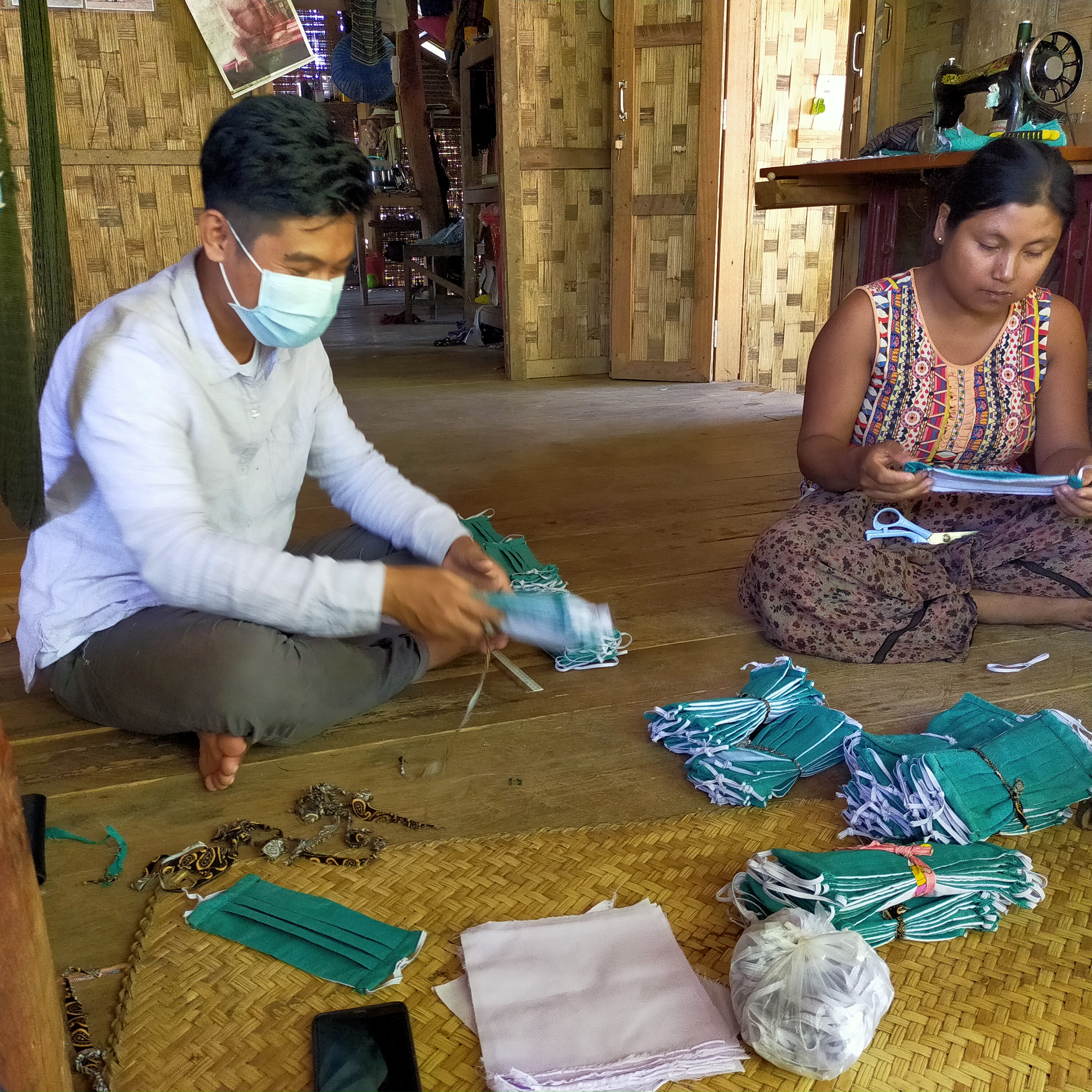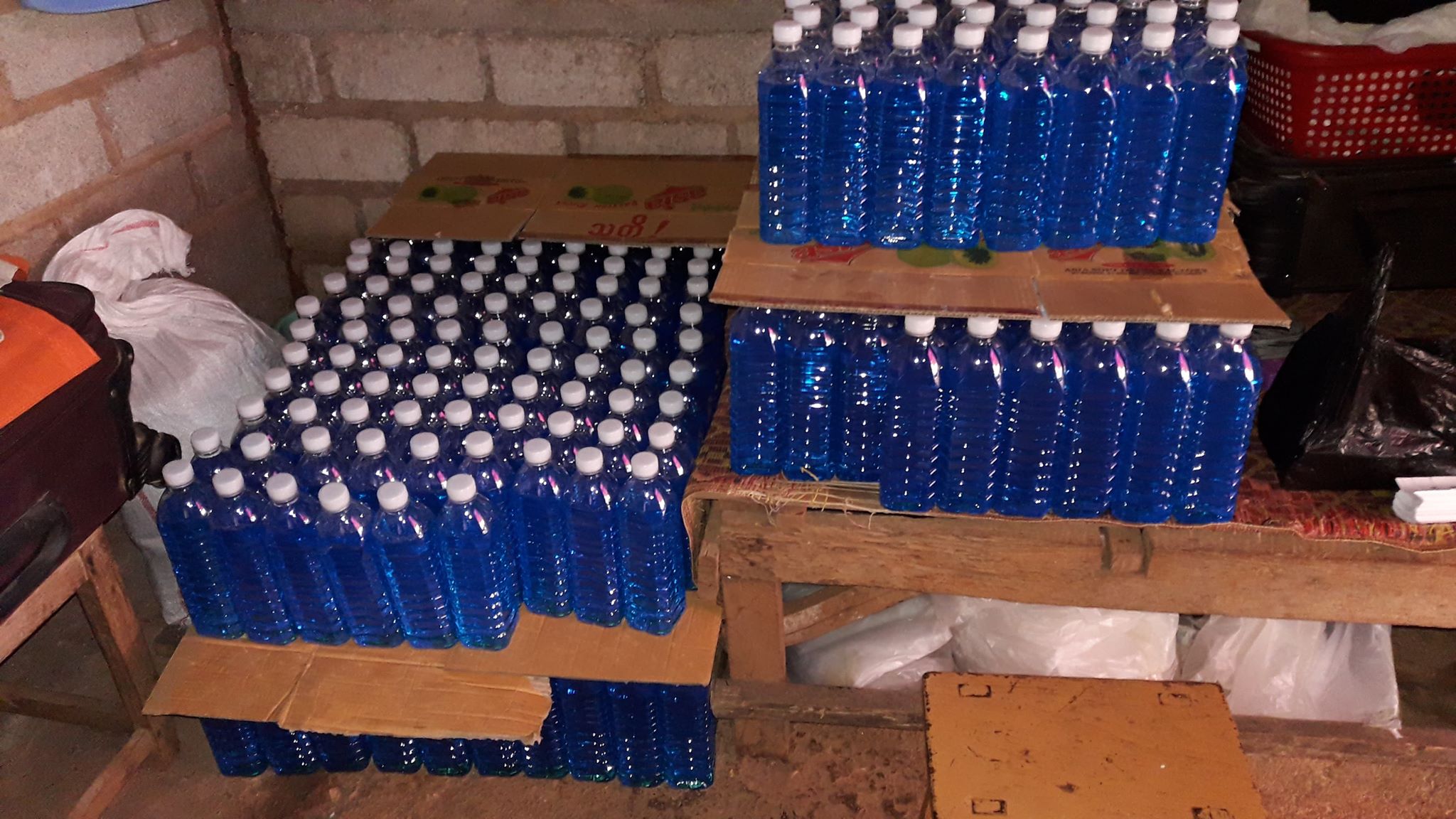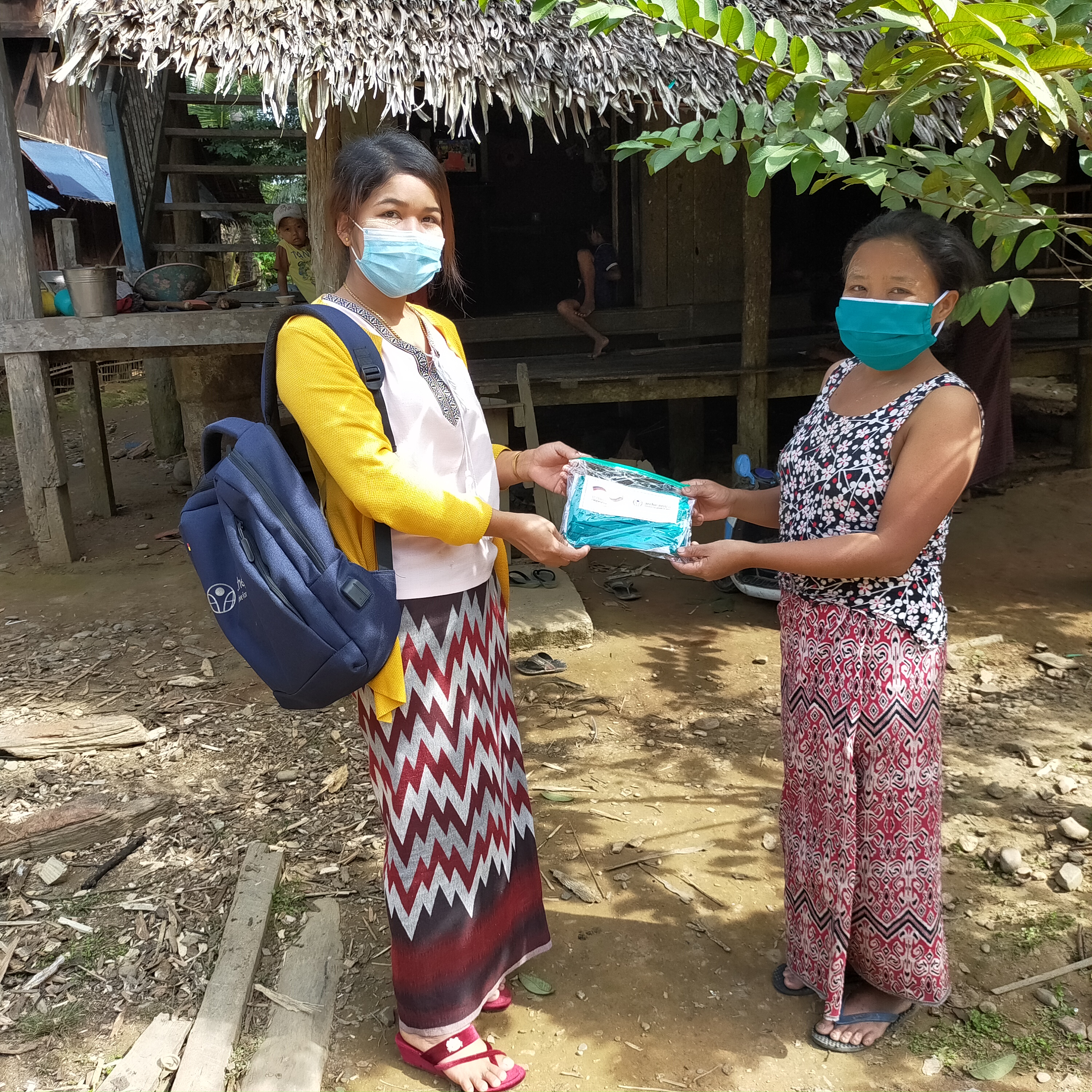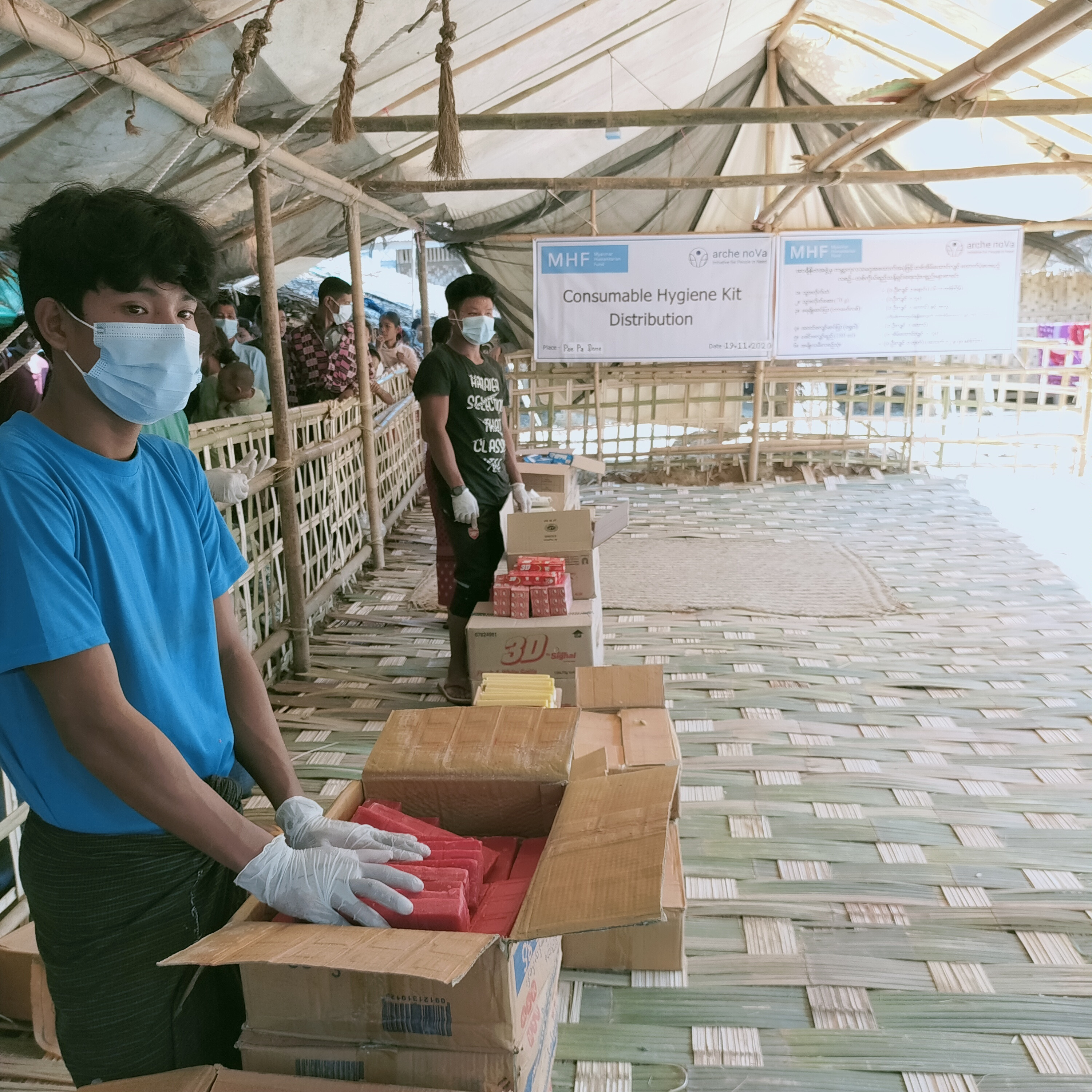In Myanmar, corona case rates have remained stable towards the end of 2020, due in no small part to strict hygiene regulations, exit restrictions and enforcement. For example, it is mandatory to wear a face mask when leaving the house, to follow social distancing rules, to wash hands regularly, and to meet with other people only in small numbers. The same has been the case again in Germany since November.
Movement restrictions threaten livelihoods of families
This has fatal consequences for the economic situation of local people. According to a study by the IFPRI (International Food Policy Research Institute) conducted throughout the country, the majority of respondents cited the loss of a job or source of income as the most important socioeconomic impact of the pandemic. The situation is quite critical in many places, because despite the reduction in income, the population is expected to buy more soap and buy masks.
Mask production and distribution on site
At this point, arche noVa starts to help by supporting local seamstresses and soap makers at two points: to enable the people to earn an income again and to end the pandemic as soon as possible, before the social situation in the country worsens even more. Since the outbreak of the pandemic, in the spring of 2020, more than 20 seamstresses in the Rakhine region and the Shan State have been identified and, with our support, have produced around 26,000 reusable face masks. In this way, not only the seamstresses were helped, but also the economic situation of the local fabric traders was improved.
These masks were then distributed to 45 villages in the Ann and Lashio communities. For some families, this was the only way to obtain masks, as they had been ordered by the government not to leave their homes. Apart from that, masks made of cloth are more environmentally friendly because they can be washed and thus used several times, but on the other hand they are also more expensive than disposable products.
Homemade soaps for health protection
The same approach as for the production of the everyday masks was also used by the arche noVa team for the production of liquid soap. A total of 3,300 liters were mixed by 15 local soap makers and distributed to families in the surrounding villages. This makes it possible for people from low-income families to follow the hygiene regulations and thus protect themselves as well as possible from the Corona virus.
In this way, the Myanmar team of arche noVa contributes to equal opportunities even in exceptional situations like a pandemic. This is the point where arche noVa, in the projects supported by the Federal Ministry for Economic Cooperation and Development/BMZ, starts to help twice by supporting sewing and soap factories.
In order to continue projects like these, we need your support.

